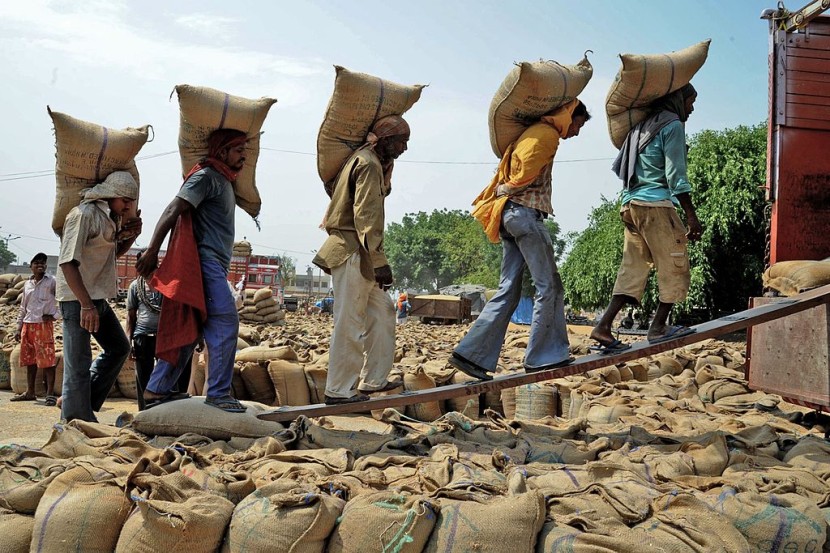
India has suspended wheat exports to help control the surging domestic prices, prompting concerns about the move's impact on global food supply and prices.
The ministry stated that only export shipments for which letters of credit were issued on or before yesterday's notification would be permitted.
Furthermore, according to the notification published by the Directorate General of Foreign Trade (DGFT), the government will allow exports on request from other countries.
The Indian government decided to manage the country's overall food security and meet the requirements of vulnerable countries.
India's Shocking Move
India is not among the world's top wheat exporters, however, the ban restriction on exports might drive global prices to new highs, putting a strain on poor customers in Asia and Africa, per an Al Jazeera report.
One Mumbai-based trading firm dealer called the ban "shocking" as they expected that it would be implemented after two or three months. But the government seems to have changed its stance due to rising inflation, per CNN.
In April, rising food and energy costs brought annual retail inflation in India to an eight-year high, bolstering anticipation that the central bank will raise interest rates more aggressively.
Wheat prices in India have reached new highs, with certain spot markets seeing prices as high as 25,000 rupees ($320) per tonne, considerably above the government's minimum support price of 20,150 rupees.
Read Also : Angry Abortion Rights Advocates Across US Rally Against Possible Landmark Ruling Reversal
In recent weeks, its domestic problems have become more evident. According to a Bloomberg report, hundreds of acres of wheat crops were damaged during India's hottest March on record, potentially lowering output by as much as 50% in some parts of the country.
This has caused anxiety in the domestic market, as millions of people rely on agriculture as their primary source of income and food. The government announced that wheat imports for the world's largest food aid program would be less than half of what they were last year. The export ban will likely harm farmers and traders that have stored grain in anticipation of increased prices.
Other Factors Aside From Wheat
Siraj Chaudhry, managing director and chief executive officer of National Commodities Management Services Ltd., a warehousing and trading company, explained reducing wheat exports by India is a logical move to ensure domestic availability and manage inflation, given uncertainties about crop size, grain purchasing program, war, high fertilizer costs, and extreme weather in other growing nations,
However, a method incorporating measures such as a minimum export price and quantitative limits would have been preferable, as a sudden ban disrupts trade, jeopardizes the reliability of Indian exporters, and reduces farmers' earning potential, according to Chaudhry.
A senior government official, who requested not to be named, said that the rise in overall prices was not due to wheat alone. Rising fuel, labor, transportation, and packaging costs impact the price of wheat flour in India.
Agriculture ministers from the G7 industrialized nations immediately condemned India's decision on Saturday.
"If everyone starts to impose export restrictions or to close markets, that would worsen the crisis," German agriculture minister Cem Ozdemir said at a news conference in Stuttgart.
"We call on India to assume its responsibility as a G20 member," Ozdemir said.
© 2026 HNGN, All rights reserved. Do not reproduce without permission.








